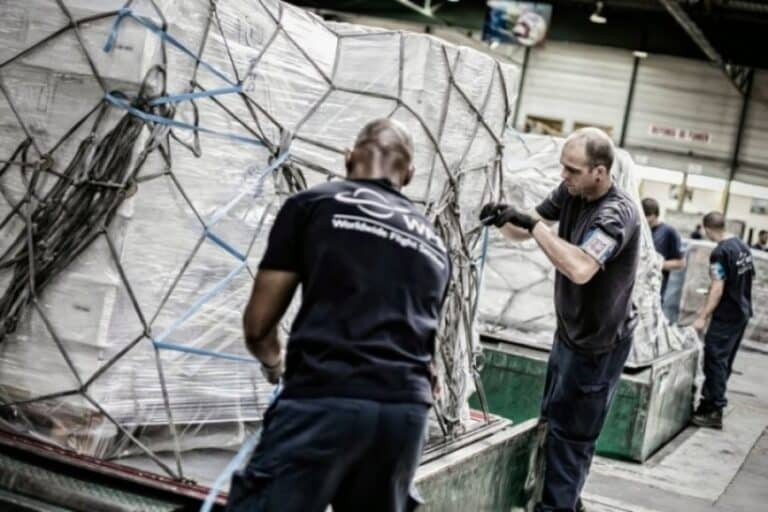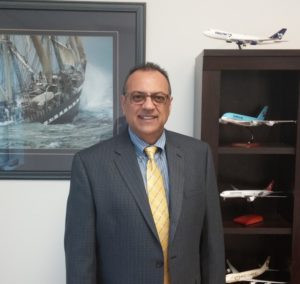Worldwide Flight Services’ (WFS) total volumes across its near 60 cargo stations across the US rose by more than 17 per cent in the first seven months of 2017.
WFS won a further 37 new airline contracts in the period as well as 10 contract renewals from existing customers. In 2016, it handled over 1.8 million tonnes in North America.
New agreements included contracts with Avianca Cargo in Miami, Atlas Air/Polar Air Cargo in Cincinnati, and AirBridgeCargo Airlines in Los Angeles as well as China Airlines in Chicago, LOT Polish in Newark and Los Angeles, and Swiss International Air Lines in San Diego.
2017 has also seen the full and successful integration of Consolidated Aviation Services (CAS) following its acquisition by WFS at the start of 2016. CAS rebranded as WFS earlier this year, making WFS the largest cargo handler in North America.
WFS North America senior vice president of sales and business development, Ray Jetha (pictured below) says there are plenty more opportunities in the US.
He adds: “The air cargo industry is experiencing an uptick and we feel we are in a good position to accommodate this growth with our current operations.
“As predicted, we will see an increase in the e-commerce market and this will certainly put some pressure on regular air cargo shipments.
“We are ready to take on this challenge and have put the necessary infrastructure in place to minimise the impact and also take advantage of the opportunities we expect to be created.
“We are also looking to grow our role as a partner to our airline customers in terms of providing value-added services for pharma/AVI/perishables etc, because we aim to provide airlines and their customers with a hassle-free, fully-controlled logistics chain under one roof.”
WFS is working with the Transportation Security Administration (TSA) to develop ‘best in class’ systems and processes for screening, monitoring and tracking cargo in the US, backing this commitment with investment. Further significant spend has been allocated to ground handling equipment and continued development of its ePic cargo management IT platform.
As for the market outlook, Jetha predicts: “2018 will be interesting as we will see the full fledged emergence of the low-cost carriers (LCCs) in the US and how that will affect the current airlines operating widebody aircraft and the freighter market. Most long-haul LCCs will be operating aircraft which can carry some 20-25 tonnes of cargo.
“We are experiencing a lot of growth organically and our customers are now asking us to open operations at second Tier airports across the US to accommodate their service requirements, which we are keen to explore as part of our long-term and growing commitment to customers.”




